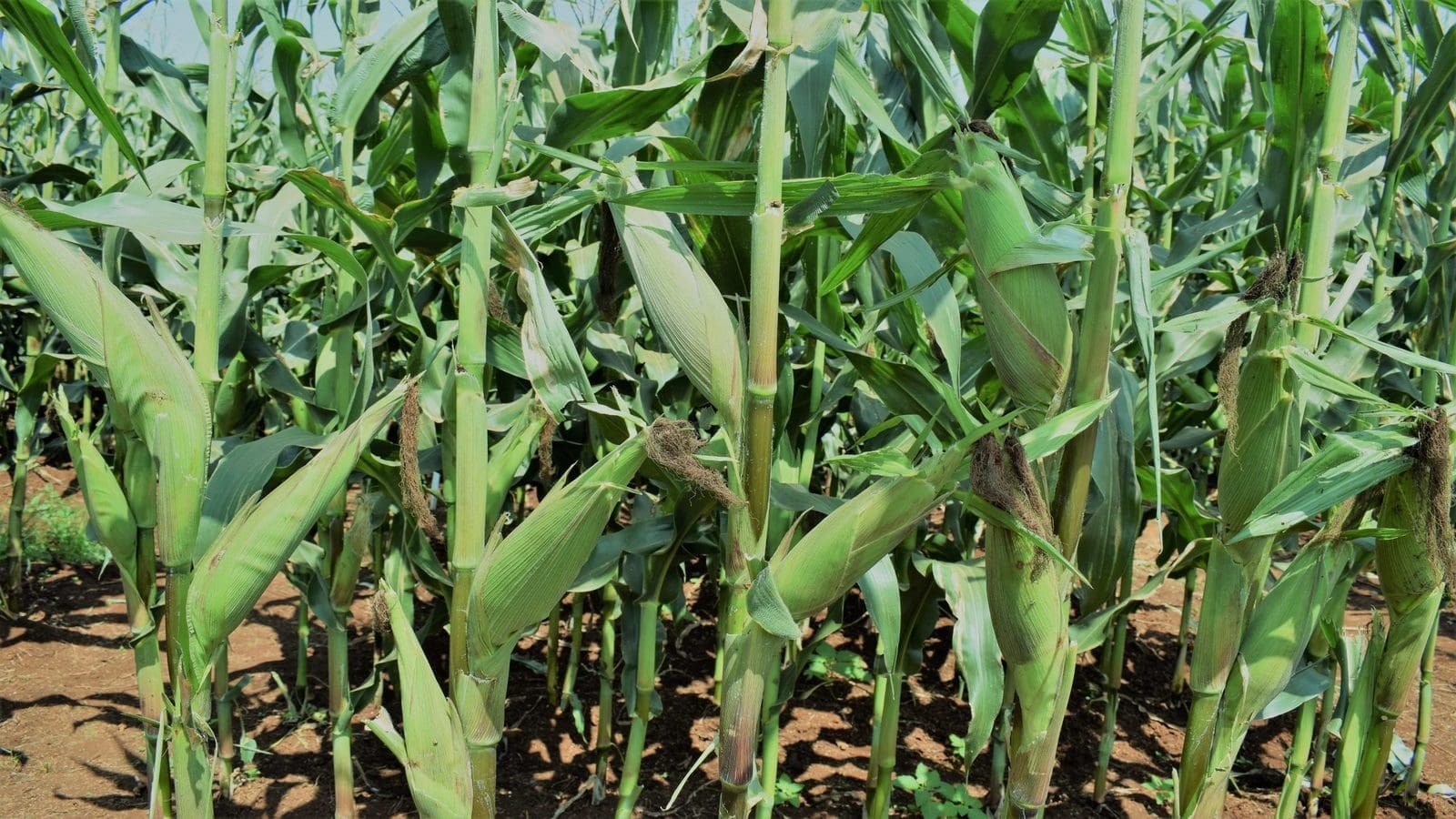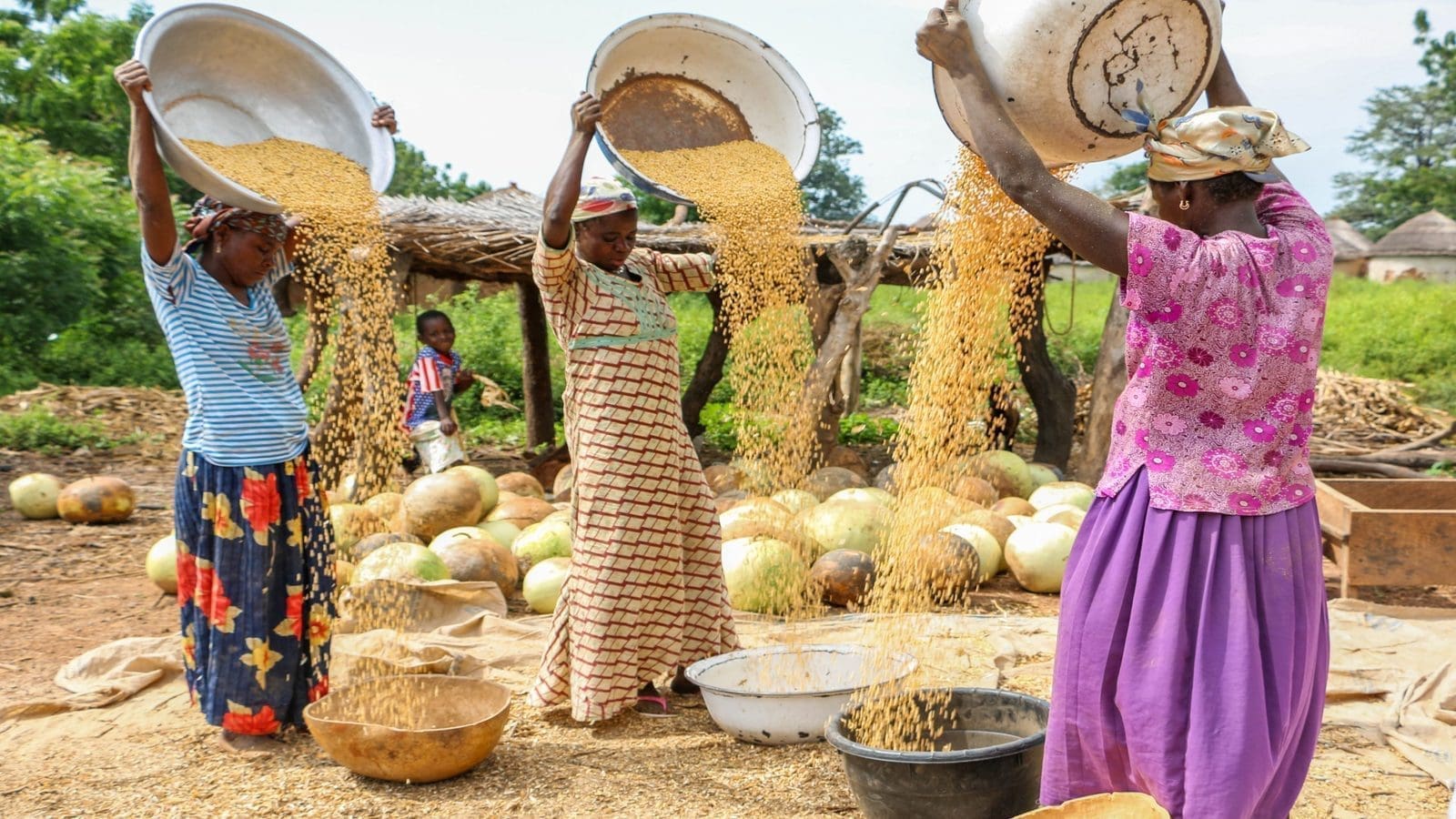NIGERIA – The federal government of Nigeria has granted environmental approval for evaluation and open cultivation of TELA maize, a new maize variety genetically modified to tolerate moderate drought and resist the fall armyworm and stem borer.
This development now places Nigeria one step closer to commercializing the biotech maize following in the footsteps of South Africa and Egypt.
The TELA maize project builds on progress made from a decade of excellent breeding work under the Water Efficient Maize for Africa (WEMA) Project. WEMA’s purpose was to develop drought-tolerant and insect-protected maize varieties for farmers to produce more reliable harvests under moderate drought conditions and protect maize from insects.
Perennial drought and infestation by the fall army worm and stem borer are major contributors to low maize production in Nigeria rendering the country food insecure owing to the crop’s status as a food staple. Though maize is the most cultivated crop in the country, grown by almost 50% of the farming households, it is still unable to meet the domestic demand for the crop, estimated at 15-18 tons annually.
The approval was contained in a certificate issued to the country’s Institute for Agricultural Research (IAR) whose researchers developed the variety. It was issued by the National Biosafety Management Agency (NBMA), the government agency with the mandate to regulate genetically modified products in the country. The certificate permits the commercial release of TELA maize effective from October 8, 2021 to October 5, 2024.
The verdict to grant the permit was subsequent to consideration of the counsel of the National Biosafety Committee, National Biosafety Technical Sub-Committee and the risk management report provided by the applicant.
“The Agency was convinced that there are no known adverse impacts to the conservation and sustainable use of biodiversity, taking into account risk to human health. The permit, pursuant to this decision, is without prejudice to other extant legal requirements,” stated the decision document signed by NBMA Director General/CEO Dr. Rufus Ebegba.
In response to the decision, Prof. Mohammed Ishiyaku, Executive Director of IAR, said it is inspiring to secure the approval for the commercial release of the drought tolerant and insect resistant maize.
“The next step is to further evaluate the performance of this new variety by farmers on their fields in all the major maize growing belts in Nigeria. Thereafter, we shall seek another approval by the National variety release committee before making the seeds commercially available for farmers to plant in the 2023 cropping season,” Prof. Ishiyaku remarked.
TELA maize benefits
Similarly, Prof. Abdullahi Mustapha, the Director General of Nigeria’s National Biotechnology Development Agency (NABDA), said that TELA maize will play a key role in ensuring the country becomes food secure, exuding confidence that the challenge of drought and pest infestation on maize will be a thing of the past.
TELA maize has the potential to transform Nigeria’s farming communities with higher yields, better grain quality and higher farm income. The TELA Maize Project was launched in 2018 and is a part of an international consortium coordinated by the African Agricultural Technology Foundation (AATF), involving Bayer, International Maize and Wheat Improvement Center (CIMMYT), and the National Agricultural Research Systems of seven countries including Ethiopia, Kenya, Mozambique, Nigeria, South Africa, Tanzania, and Uganda.
Countries growing GM crops
Insect protected (Bt) maize is approved in major maize growing regions of the world. According to AATF, in 2017, a record 189.8 million hectares of biotech crops were grown globally – an increase of 4 million hectares from 2016 and more than 100-fold gain since 1.7 million hectares were planted in 1996. An estimated 23.3 million hectares of land were planted with crops containing the Bt gene.
For the first 22 years of commercialization (1996-2016), benefits from insect resistant crops are valued at US$ 97.4 billion, 52.3% of the global value of biotech crops of US$186.1 billion; and for 2016 alone at US$9.73 billion, 53.4% of the global value of biotech crops of US$18.2 billion, records AATF.
In South Africa, an estimated total of 2.73 million hectares of Bt maize was planted in 2014 alone. Bt maize has been in the market for over 20 years, with more than 30 countries growing it today. This same insect-protected maize is approved for planting in Europe and is planted in Spain, Portugal, Czech Republic and Romania.
In Africa, countries growing Genetically modified (GM) crops are South Africa, Burkina Faso, Sudan and Egypt. Recently, Nigeria and Ethiopia also approved GM products for commercialization. Bt maize has been granted environmental release in Kenya but is awaiting approval to proceed to National Performance Trials (NPT) for variety certification.
Liked this article? Subscribe to Food Safety Africa News, our regular email newsletters with the latest news insights from Africa and the World’s food safety, quality and compliance. SUBSCRIBE HERE








